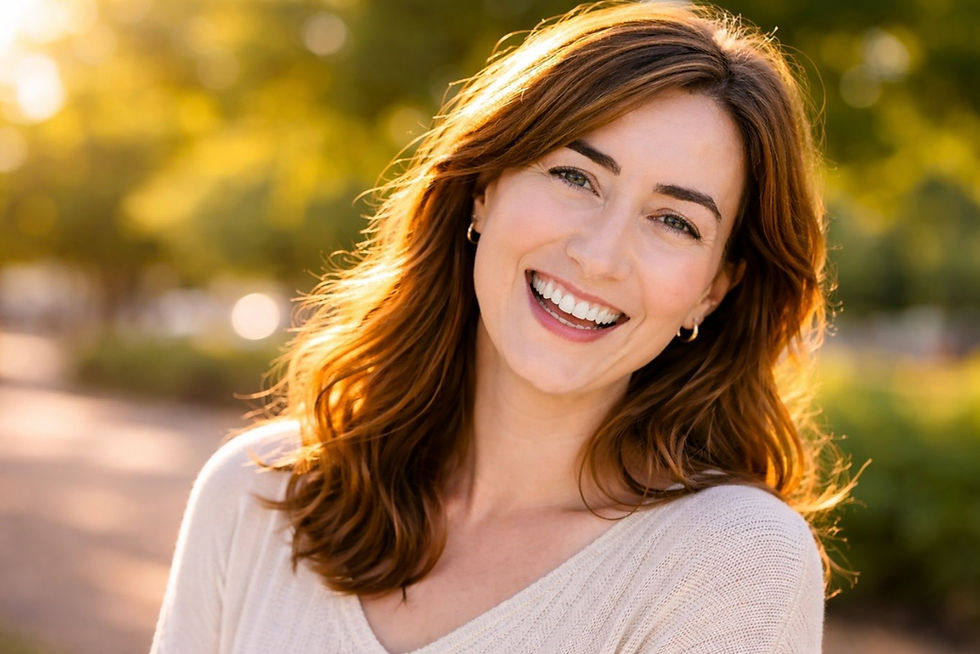What is Special Needs Dentistry?
- Dr Avanti Karve

- Mar 29, 2023
- 5 min read

Who needs special-care dentistry?
The Royal Australasian College of Dental Surgeons defines special needs dentistry (SND) as the branch concerned with the oral healthcare of people that require special methods or techniques to prevent or treat oral health problems, or where their conditions necessitate special dental treatment plans.
These conditions can be intellectual disabilities and/or medical, physical or psychiatric conditions, or a combination. But to us professionals charged with looking after this unique group of patients, it is so much more.
Who can provide treatment?
Ideally persons with special health needs should be able to access all general dental practices. Dr Karve has spent the last several years in training dental students and young dental practitioners in managing patients with a diverse range of needs and abilities. Some patients present with complex needs and need specialist care. Others find it hard to get to the surgery and so other arrangements may be made by the practice: for example, home visits or treatment under sedation or general anaesthesia.
What is so special about a Special Needs Dentist? and How do I arrange specialist Referral?
Specialist care in SND aims to offer holistic patient care where our team liaise closely with the patient’s other caregivers to ensure the best possible care. Managing this is typically more complex task as we may need longer appointments where more time is spent preparing and data gathering both pre and post-consultation.
It’s not uncommon for our patient to live in residential care, have carers who look after them on a daily basis, have a family member who consents for them and an administrator to handle their finances. Then we have general medical practitioners and other specialists and allied health providers who need to be involved.
This puts special needs dentists in a position of trust and can lead to them becoming their patient’s advocate. We are able to sometimes facilitate care that might not be available through other services, for example where a patient is having [dental] work done, doctors are also able to take advantage of the fact the patient is under general anaesthetic to get routine blood tests done. Similarly, if the patient is having other surgery we can take that opportunity to go and have a quick peek at their teeth which might not be possible otherwise in some patients.
How do I arrange specialist care?
We are happy accept referrals from all medical, dental and allied health practitioners, but also from patients, parents and carers. This is because we believe you know your loved one best.
Whether you require treatment of a specific problem or comprehensive care, we are happy to help. We are proud to offer spacious rooms with wheelchair access for treatment in-chair or under sedation or general anaesthesia
What do the dental team need to know?
Our team will need to know the patient’s medical history and about any medicines they are taking. This includes regularly prescribed medicines from the doctor as well as any alternative medicines or supplements. We will also need to know the name of the family doctor (GP) and any specialists, and about any recent operations and allergies the patient may have.
Please ensure you send along all relevant documents and Xrays to achieve the best consultation. This can include guardianship details the most recent medical summaries and allied health reports (speech pathology assessment, behaviour support plans).
It is also helpful if the dental team know about any specific concerns or anxieties the patient has, so we can try and make the appointment a positive experience. This information can be given by the patient themselves or by the parents or caregivers.
We also encourage you to share your tips on what will make you or your loved one feel comfortable and secure in our clinic. This might include bringing along special music, treasured momentos or wearing a favourite accessory. We also welcome those with registered therapy or guide dogs.
When is the best time to be treated?
Some patients prefer to be seen at certain times of the day depending on their needs. For instance, evening appointments may not be suitable for patients who tire easily or may spend the day worrying. Some patients rely heavily on routine and may need regular appointments at the same time. We will try our best to tailor appointment times to match these needs.
How accessible is the clinic?
Getting to the clinic can become a big access barrier for many patients. Those with anxiety find small dental surgeries especially claustrophobic. Those with mobility issues need wheelchair access and easy parking. We have been very mindful of these needs in designing spacious rooms with wheel-chair access and easy onsite parking.
Why is medication an issue?
Patients with multiple medical conditions have to rely on medication to maintain their health. Many medications not only have a significant secondary impact on the mouth, but they also interact with medications and anaesthetics prescribed by the dentist.
It is important to tell our team about all medication the patient is taking.
Is sedation available?
Some patients will benefit from (pharmacological) medication support to assist them in accessing dental care. This might include working in with the patient’s existing medication plan or prescribing a short acting oral pre-medication.
We also offer treatment under happy gas (inhalation sedation or relative analgesia), intravenous sedation or general anaesthesia.
What other help is available?
Dr Karve and her team routinely work in with the patient’s support system to achieve a positive dental experience. If this is not in place, we may encourage you to engage a psychologist or behaviour support planner to assist us.
How often should I visit the dental team for care?
It is important to visit the dental team regularly. This would normally be every six months, but some people need to visit less often and others more often. It all depends on your individual risk of oral disease. Sometimes short but regular appointments may be required for desensitisation and familiarisation to build trust between the patient and our team.
Our specialist may also recommend appointments with a dental hygienist, who will remove plaque and tartar from the teeth and offer advice on how to brush effectively and keep your mouth clean and healthy. The dental team may also offer advice to care givers about the dental care of others. Our focus is to build a relationship between our team and our patient and their care giver.
What treatment might I have to pay for?
Unfortunately Dentistry is not covered under Medicare or NDIS. As a private clinic, Mind Body Teeth does not accept Pensioner or Health Care Cards or Medicare Cards. Some patients may be eligible for the Child Dental Benefit Scheme.
If you have private health insurance, we have a HICAPS machine for onsite direct claims to private health funds. Sometimes there is an out-of pocket GAP payment depending on how much rebate the health fund provides
Need more advice?
Navigating the “system” can often feel overwhelming. If you are feeling lost or simply wish to chat over the phone to get the right advice, please dont hesitate to ring our team directly on 1300 339 143 or email us your concerns.




Comments